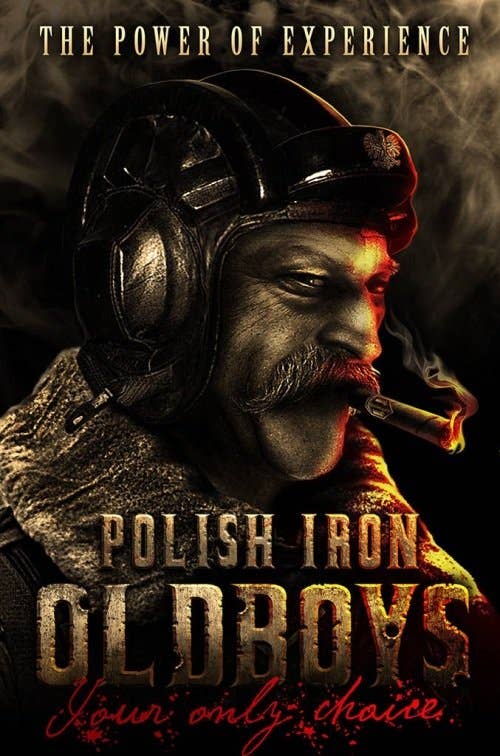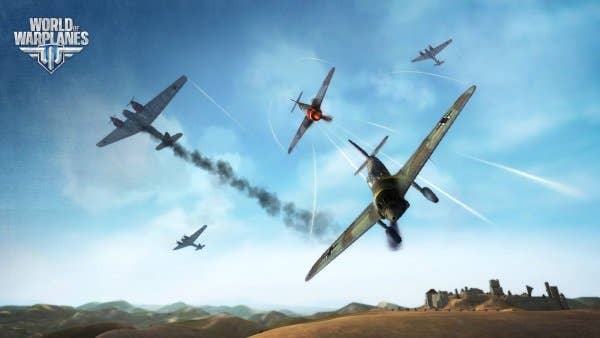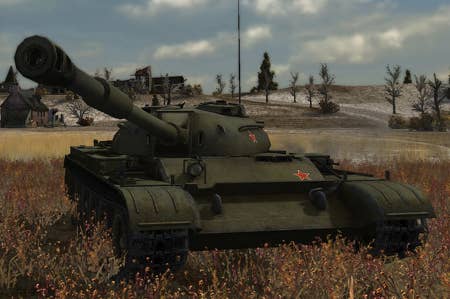World of Tanks monthly revs hitting "double digit" millions
Paying and concurrent users, employee numbers and Asian growth plans all revealed by CEO Victor Kislyi
Free-to-play MMO World of Tanks is generating "double digit" million dollar revenues a month, according to Wargaming CEO Victor Kislyi.
As the game has grown to reach over 20 million registered users, developer Wargaming.net has scaled with it - 18 months ago the business consisted of 120 employees primarily based in Minsk. Today it is approaching 800 staff around the globe.
"If you count the last year and a half, we might be the fastest growing company ever, headcount wise and revenue wise," Kislyi told GamesIndustry International. "When you see the numbers of Twitter, Facebook or even Google for a year and half we probably outperformed them."
Of the 20 million registered users, Kislyi is proud of the number of players actually paying for content in the game - figures that are among the highest for any free-to-play title.
"We probably have one of the highest payment ratios in the industry, it's around 25-30 per cent," he revealed. "Because people love the game."
Kislyi, like all execs in the free-to-play space, is guarded when asked about profits from the MMO, but is happy to talk sales numbers in a game that doesn't have a high barrier to entry or pester the player to spend cash at every turn.
When you see the numbers of Twitter, Facebook or even Google for a year and half we probably outperformed them
Victor Kislyi, Wargaming.net
"Those would be millions of dollars [of revenues] per month," he said of. "Many millions. I'm not going to give you the exact number, but double digits. Not high double digits."
"Ironically the game is not squeezing monetisation, it's not rough. There's no velvet rope over the gates and you have to buy a key to open it. Some MMOs are like this but we are not. It's smooth and non-intrusive," he insisted.
"For casual gameplay which most players do most of the time, people don't usually use gold or expendables. Of course if you want to win a tournament, if you're competitive, if you play clan wars, if you want to be at the top, we think it's appropriate to expect a little bit of money from you because you already spent hundreds of hours in our game and that's much more than the value of any $50 box. But it's still a micro transaction game, you would have to be very creative to spend $1000."
World of Tanks launched in Russia in April 2010 and a year later in China, the US and Europe, but its home country is still the most popular. "It's the biggest game ever, bigger than all the other games including social, combined", said Kislyi, but growth across regions is impressive, evidenced by the number of concurrent users.
"Last week in Russia our recent concurrent user record was 423,000 playing online at the same time," offered Kislyi. "That's 1.5 times bigger than the whole user base of EVE Online. And that's just concurrent, you can multiply that by ten and get the amount of active players, so that's just under five million.

"Europe is about 85,000 online so that would be close to a million actives," he continued. "America is the slowest so far with around 25,000 - 30,000 peak, so around half a million."
Online operator KongZhong runs World of Tanks in China, and while official numbers are unavailable, estimates seen by GamesIndustry International put concurrent players at around 150,000. "Our game is their frontrunner making a lot of revenues and growing really fast," added Kislyi.
There are 400 people working on World of Tanks, and expanding out from the Minsk headquarters Wargaming.net has opened new offices in Kiev with around 150 people working on sequel World of Warplanes, with another 50 staff "making some smaller projects." Additionally, there's a 70-plus team in St. Petersburgh working on World of Battleships
There's a sense that the Wargaming business is expanding rapidly with a life of its own. Europe has operating offices in Paris and Berlin, and a new office has opened in San Francisco. On top of that, the company is in various stages of roll-out across Asian regions, including Vietnam, Korea, Singapore, Malaysia, Taiwan and the Philippines - with Kislyi also eyeing Brazil, Turkey and the Middle East further down the line.
That's an epic amount of work, from localisation to staffing, but Kislyi is confident the universal understanding of the content is one of the reasons the game has already become such a big success in China and stands it in good stead for other regions.
If you want to be at the top, we think it's appropriate to expect a little bit of money from you
Victor Kislyi, Wargaming.net
"We are in a luxury position to have war machines, vehicles, that are culturally and historically acceptable for the Chinese or for the Korean people. It's not about culturally-centric characters. A tank is a tank. World War II was a global war and a boy in China knows what a warplane is. There is no way to make it more Chinese or more Vietnamese. It's a Mustang."
"We were really nervous to begin with and there were doubts that Asian people were not ready for tanks and warplanes - they prefer dragons and princesses. Well, we proved them wrong. Our Chinese revenues and the number of players are growing really fast. Since November they have almost doubled. That's a pretty good growth rate. Our strategy is to keep cool and keep calm. We understand that to take Korea we need to prepare well, we need to hire well, localise the game, have specific marketing and promotions. We must do it properly. We are in a position where we won't be rushed or pressed. It will be released when it's ready," he added.
"With World of Tanks it was easier for us go in and nobody was expecting anything from us. We kind of flew under the radar. For World of Warplanes we can see the cameras looking at us. The games industry, the media, the players. They have very high expectations, we cannot screw it up, we have to make everything perfect."
Lone Wolf
Wargaming.net decided early on that a traditional publishing deal for World of Tanks would not be able to match the company's ambitions of scale.
"This is not the old-days of games in a box, that model died," said Kislyi. "You have to be a publisher and developer under one roof - that's what we realised four years ago when we started shopping around for publishers for World of Tanks. We met them all. Trying to negotiate a contract we realised they would not be able to do the job.
"They have too many games, built on a concept of having a fantasy game, a pirate game, a Hello Kitty game, a shooting game... and World of Tanks would be one of twelve. We'd be struggling, World of Tanks has 400 people working on just one game. Some publishers aren't that big with multiple projects."
Approaching the project realistically, Wargaming.net scaled not only creative staff, but also the community management required for the games-as-a-service model that the online games business has now become. "Customer support, community management, running forums, moderating, running in-game events, meeting with players, organising e-sports tournaments, that all requires a lot of smart people to do, " detailed Kislyi. "If you have millions of players it's like elections in a small country. You have to control a large amount of people to make sure they're moving in the right direction.
"We discovered that you cannot do it on a small scale, even out of Belarus we could not run this out of Minsk. It has to be cultural, it has to be local, we have to have local people answering tickets, handling money issues, running the community. Of course it's expensive, these are not low payments, people have to be smart, and for us they have to be the best of the best."
UPDATE: Wargaming representative Arthur Pratapopau has contacted GamesIndustry International to insist that Victor Kislyi was discussing "double digit" revenues rather than profits. We have updated the story accordingly.


